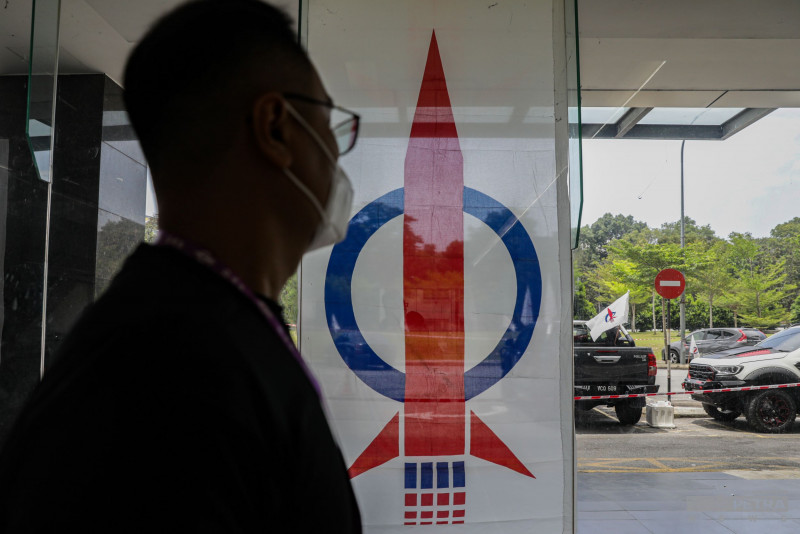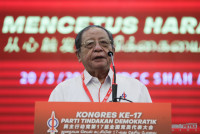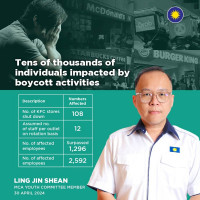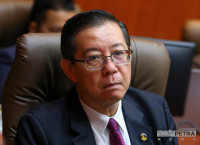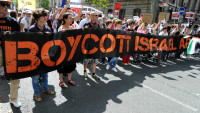AFTER the May 13 tragedy, the Chinese were shaken and felt threatened. Whenever there are racial issues, they prefer to be silent, and their self-consolation has always been “We are just cari makan here only,” meaning don’t rock the boat, don’t pick a fight, and to value the peace, harmony, and unity that we have here. Thus, MCA had been conditioned to be politically subtle.
This has been the political philosophy and expectation of the Chinese then, and they are able to stomach many “injustices and suppressive” policies as they have good endurance. Many times, when there are issues of concern, they prefer them to be settled diplomatically instead of being confrontational. That was the mood of the day in the 70s and 80s when the “Ultra Malays” were at their peak before they were taken over by political Islam activists.
Unlike the Western-educated who tend to be more vocal and choose to debate and articulate on issues, the typically Chinese-educated prefers a non-confrontational approach or to go underground to display their discontentment. Call this a cowardly act or by any names but Chinese culture has grown in a feudal and suppressive system whereby it does not pay to be righteous or opinionated. Their political culture and approach have always been one of caution so that they do not get into “life traps” or any political calamity or disaster. This is more prevalent after the May 13th racial riots and shocks, whereby the Chinese chose to tread carefully on the 3R issues, which are rendered “sensitive”.
This was so until the emergence of more Western tertiary-educated Chinese, social media, and Taiwanese political culture.
By and large, the Chinese have always seen the gentler, more courteous, and subservient side. Running amok or turning violent is alien to many Chinese, whose exposures then were mainly gentlemanly English-schooled Malay officers or humble employees or servants.
Post-New Economic Policy, the Malays have a totally new and different stratum which are multi-facetted. There are rural simple Malays, religious Malays, nouveau riche or new rich politicians, businessmen, bureaucrats, traders, professionals, etc. Most of the nouveau riche are from Umno and DAP has successfully provoked the Chinese by calling them out as haughty and arrogant Umnoputras.
Many Chinese have grown up seeing the nicer side of Malays, having Malay joint-venture partners, relatives with inter-marriages, and social buddies with progressive-thinking Malays. They have discovered that these Malays can be the best of social friends and easy-going business partners and assume that their mannerisms are the same in politics. However, the Chinese electorates have underestimated them by thinking that they are easy to manage and if there’s Ubah or change, the changes can only be better and as per their expectations and dictates. DAP have gone one step ahead with their narratives of “using Malays to win Malays,” implying that the DAP can do better and upstage MCA in this political aspect.
Thus, many Chinese electorates bought into DAP’s narratives when they accused MCA of being cowardly, not abled, and selling out their rights and interests to secure their personal positions in the government. Many of them are of the opinion that it is easy to manage Malays based on their own personal social and economic experiences with them.
Thus, over 90% of the Chinese bought into DAP’s narratives of “Ini kalilah” and “Ubah” as they are of the opinion that DAP can deliver the changes promised to them, such as equality, meritocracy, CAT, UEC , local government election, 999-year leasehold title to new villages, etc.
Now that we have had a new regime twice, i.e. in 2018 and 2022, whereby DAP has won the most number of MP seats, we are suddenly at a loss as to what “New Malaysia” or “Malaysian Malaysia” bring to their biggest supporters, with 95% or so Chinese supporting DAP’s Ubah or change of government.
After U-bah (after you ba), where do we go from here?
For the very first time in Malaysian political history, MCA and DAP are on the same page, rushing in to support the Umno candidate in the recent DUN Pelangai by-election in Pahang. This is the only by-election whereby it is a foregone conclusion that Umno will win hands down and Chinese votes will be for Umno and Umno alone. The Chinese will never support a PAS candidate, especially after PAS high-profile moral policing in Kelantan and the closing of wellness centres in Kedah.
This is one of the only or the only few by-elections whereby Chinese have no conditions, issues, or demands from the Umno state government in giving their support. Unlike previous by-elections, MCA state exco members will be on the ground to listen to the Chinese electorate’s grievances and complaints, or “witch doctoring” to please them or deliver their expectations, but in this case, MCA president Datuk Seri Wee Ka Siong , MCA state chairman Datuk Seri Hoh Khai Mun and Bentong MCA newly minted division chairman Datuk Kan Meng Fatt with no government positions, have more optics than the Chinese state exco from PKR’s Sim Chong Siang and DAP’s Leong Yu Man.
Normally, it is the state government that has an advantage with the excitement of more developments and projects in the constituency, but in this by-election, it was the PN that made an issue of a lack of development in Pelangai.
The Chinese supporters of PKR, DAP and now MCA have little or no complaints about local or national issues, despite economic adversities and the increasing cost of living. Umno is now seen as our saviour and our guardian from PAS, or the green wave. This suffices.
Eventually, Umno’s candidate Amizar Abu Adam won by a 2,949-vote majority over Kasim Samat of Perikatan Nasional. BN secured 2,722 Chinese votes in four Chinese new villages, whereas the PN only received 234 votes. – The Vibes, October 17, 2023
Senator Datuk Seri Ti Lian Ker is a former MCA vice-president



